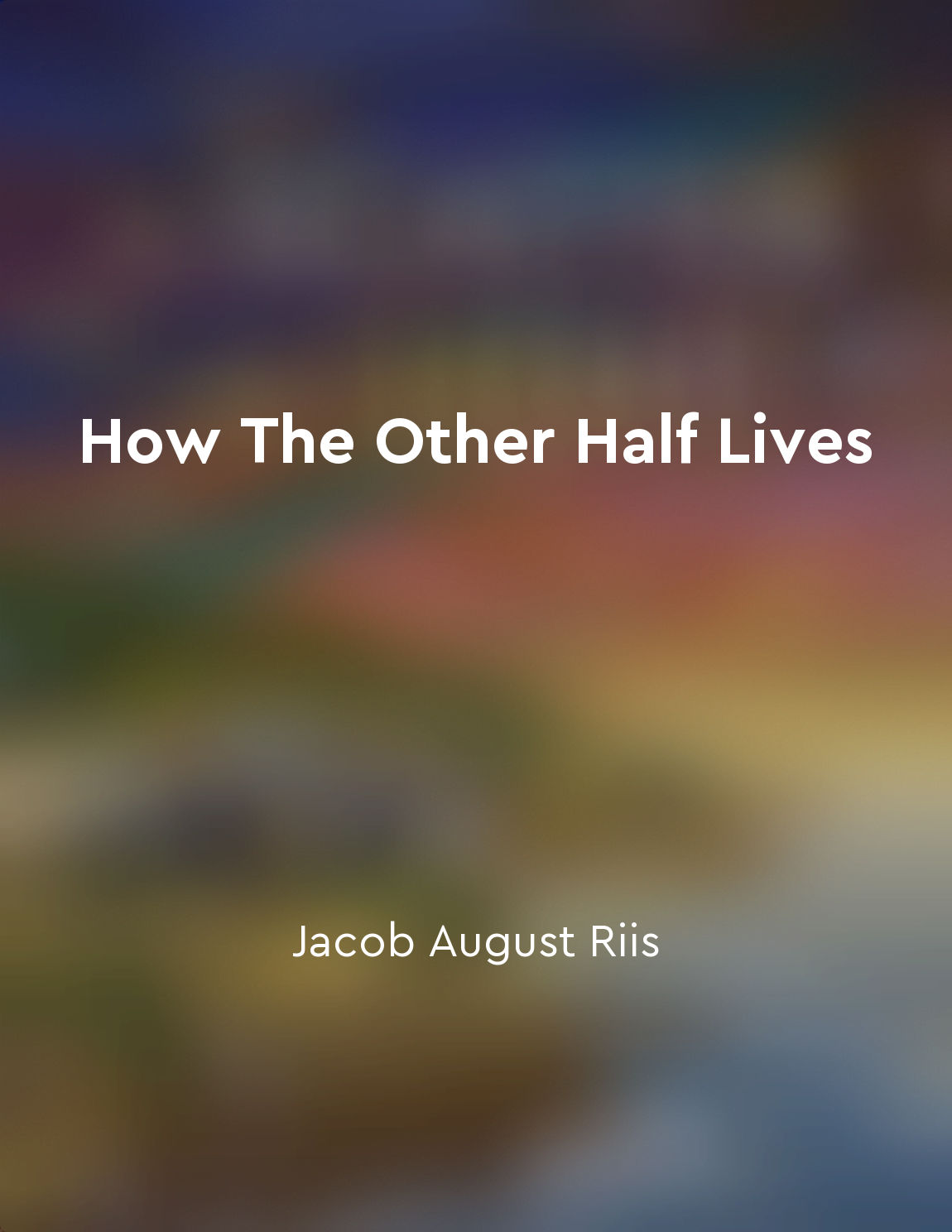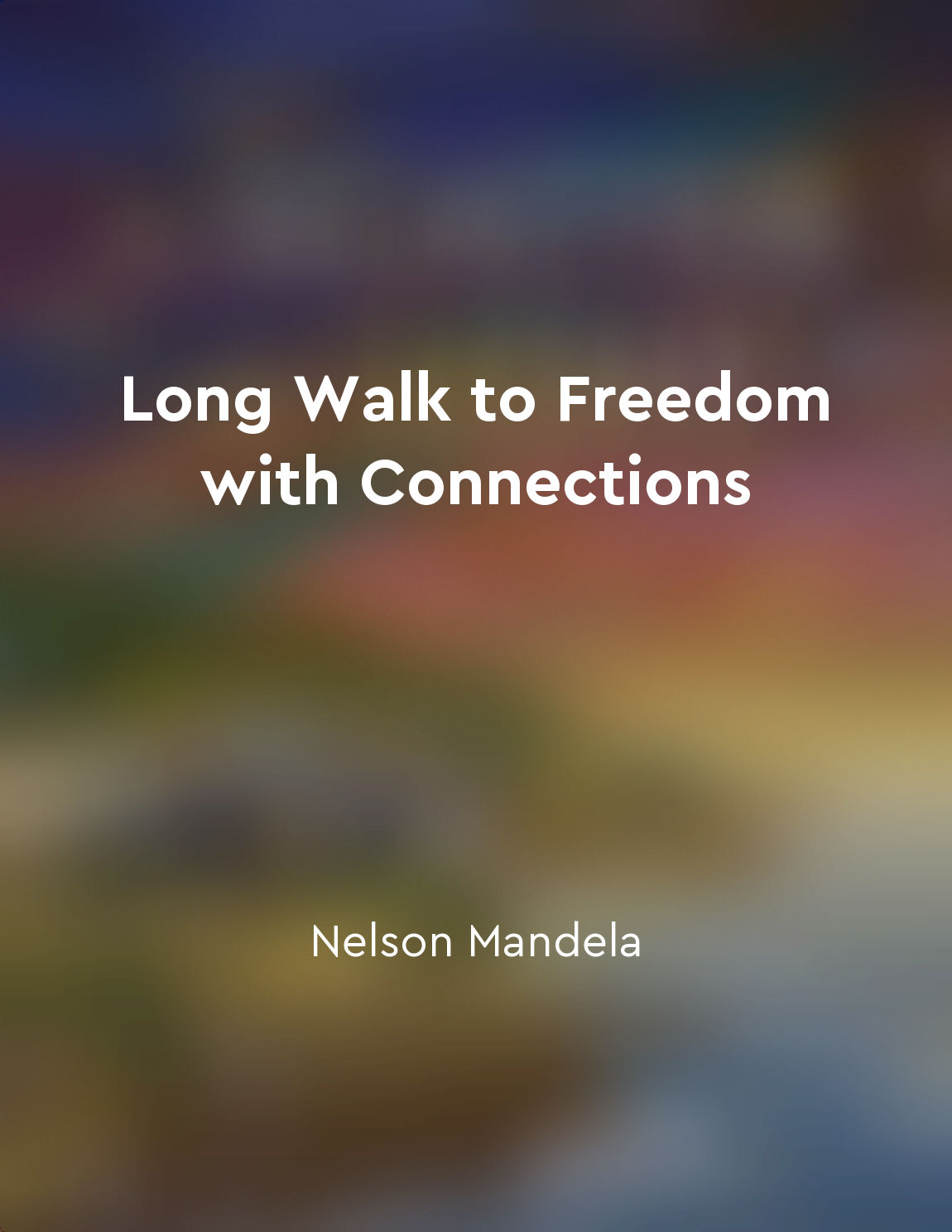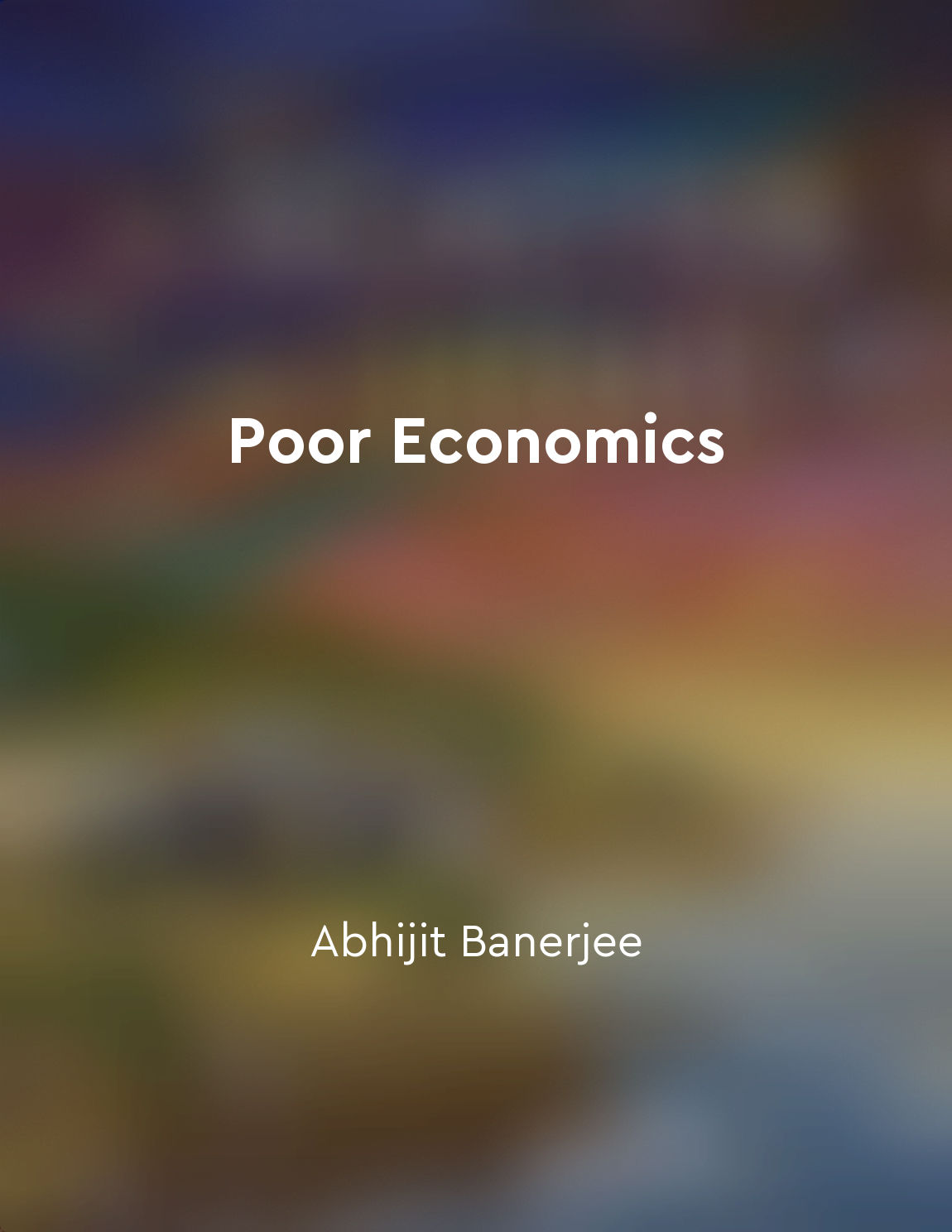Poverty traps prevent individuals from escaping poverty from "summary" of Poor Economics by Abhijit Banerjee,Esther Duflo
Poverty traps are like quicksand, pulling individuals down and preventing them from climbing out of poverty. Once people are stuck in this vicious cycle, it becomes increasingly difficult for them to break free and improve their economic situation. These traps can take many forms, such as lack of access to education, healthcare, or financial services. Without these essential resources, individuals are unable to acquire the skills and opportunities necessary to lift themselves out of poverty. One common poverty trap is the lack of education. Without a proper education, individuals may struggle to find stable employment or earn a decent income. This lack of economic mobility can keep them trapped in poverty for generations, as they are unable to break the cycle of deprivation and disadvantage. Similarly, poor health can also act as a poverty trap, as individuals who are sick or malnourished may be unable to work or earn a living, further exacerbating their financial struggles. Furthermore, individuals living in poverty often lack access to financial services, such as credit or insurance, which can help them weather financial shocks and invest in their future. Without these tools, individuals may be forced to rely on predatory lenders or risky financial schemes, trapping them in a cycle of debt and poverty. Additionally, social norms and discrimination can create barriers for individuals trying to escape poverty, limiting their opportunities for advancement and success. In order to break free from poverty traps, individuals need targeted interventions and support to help them overcome these obstacles. By addressing the root causes of poverty, such as lack of education, healthcare, and financial services, individuals can begin to build a pathway out of poverty and towards a more stable and prosperous future. It is only through a comprehensive and multi-faceted approach that individuals can break free from poverty traps and achieve economic security and well-being.Similar Posts
Through Dasani's story, the reader is invited to confront uncomfortable truths about society
Dasani's story serves as a mirror reflecting the harsh realities of society that many often overlook or ignore. By following he...

Grief and healing
In the midst of loss, we are forced to confront the reality of grief. It is a raw, unrelenting emotion that threatens to consum...
I believe in peace
The desire for peace is deeply ingrained in my being. It is a belief that has guided my actions and decisions throughout my lif...
Nationalism is seen as a dirty word
Nationalism, a sentiment that has historically inspired nations to great achievements and victories, has fallen out of favor in...

The affluent society must confront its social and economic disparities
The prevailing notion that an affluent society is a utopia where everyone thrives is a fallacy that must be confronted. The rea...
Personal relationships are shaped by societal norms
In Annawadi, as in many communities across the globe, personal relationships are heavily influenced by the norms and expectatio...

Human suffering
The streets are filled with the downtrodden, the destitute, the forgotten. They wander aimlessly, their faces etched with pain ...

Healing a divided nation
The process of uniting a nation torn apart by division is a monumental task that requires patience, understanding, and most imp...
Geopolitical dynamics may shift in a postpandemic world
Geopolitical dynamics are likely to undergo significant changes in the aftermath of the global pandemic. The current crisis has...
Focus on shortterm gains harms long-term progress
In the rush for immediate profits, businesses often neglect the long-term consequences of their actions. By prioritizing short-...

